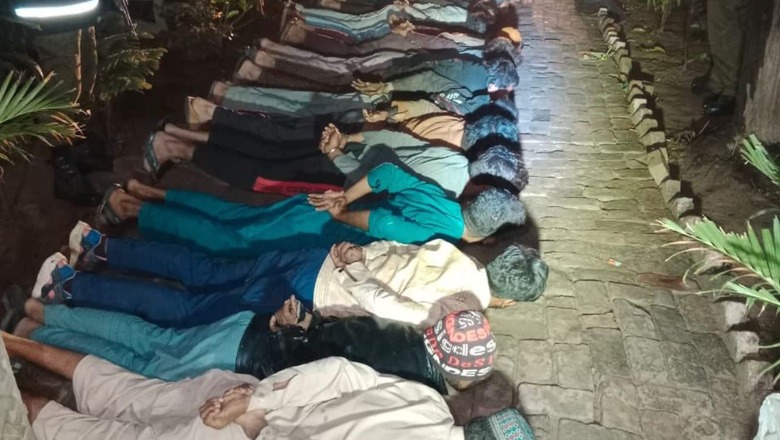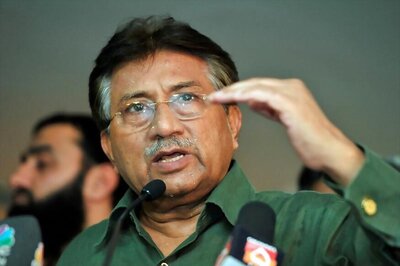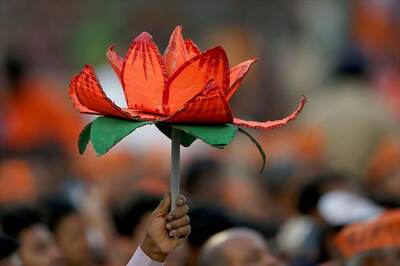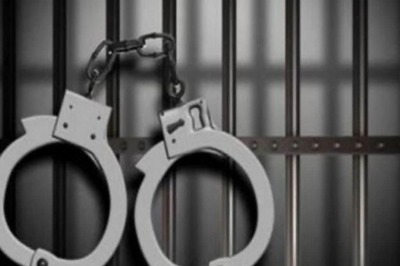
views
Pakistan cracked down on “illegal” Afghan refugees with 183 men arrested in Rawalpindi for alleged criminal activities, while women and children were jailed in Karachi. The police, in multiple raids, detained at least 1,200 Afghan nationals, who had entered Karachi without valid travel documents, officials said.
According to reports, on December 28, Afghan women incarcerated in Karachi’s Landhi jail were brought to the city court, where they were locked up inside the Bakshi Khana. These women were accompanied by a large number of children, human rights activists said.
Pictures of some Afghan children crammed into a cell of the central jail in Karachi went viral on social media, drawing appeals for their release along with their parents. At least 139 Afghan women and 165 children are among those being held at a high-security jail in the southern port city, as per a report released last week by Pakistan’s National Commission on Human Rights.
Sources said the authorities arrested Afghan citizens illegally entering Pakistan under Section 14 Clause 2 of the Foreigner Act, 1946. While the men were arrested and sent back to Afghanistan because they had identity cards, the women continue to remain behind bars as they do not have documentation.
The report by the human rights panel showed that out of the 139 Afghan women incarcerated in the women’s wing of Karachi Central Jail, 56 have been sentenced and 83 are undergoing trial. Out of the 165 children, 111 aged between 10 and 13 are in the child prison. Out of them, 92 have been sentenced and 19 are undergoing trial.
The arrests brought criticism from around Afghanistan after images of locked up Afghan children were circulated online. The detentions underscored the strained relations between the two South Asian neighbours.
Pakistani officials said the detainees will be deported to Afghanistan after serving their sentences or when the paperwork for their release is completed by their attorneys. They claimed that most of them wished to return home.
While Pakistan routinely makes such arrests, multiple and apparently coordinated raids were launched in October to detain Afghans staying in Karachi and elsewhere without valid documents.
Gul Din, an official at the Afghan Consulate in Karachi, said he was in contact with Pakistan about a “quick and dignified return” of the Afghan citizens to their homeland. In the Afghan capital of Kabul, Abdul Qahar Balkhi, a spokesman for the foreign affairs ministry, said embassy officials had expressed their concerns during meetings with their Pakistani counterparts.
“The Pakistani authorities have repeatedly pledged swift release of these detainees,” Balkhi told The Associated Press, saying so far Pakistan had failed to “fully deliver on the commitment”.
“We believe that such degrading treatment of Afghans in Pakistan is not in the interest of any party,” he said, advising Afghans not to enter Pakistan “unless absolutely necessary and without proper documentation”.
According to lawyers who help such detainees, there were some pregnant Afghan women who fled Afghanistan to seek medical treatment and for other reasons. They are detained in Karachi and elsewhere in Sindh province. A detainee even gave birth to a child in the Hyderabad jail, they said.
The lawyers said dozens of Afghans were deported to Afghanistan last month after they completed their sentences, which were usually up to two months.
Millions of Afghans fled to Pakistan during the 1979-1989 Soviet occupation of their country, creating one of the world’s largest refugee populations. Since then, Pakistan has been hosting Afghans, urging them to register themselves with the UN and local authorities to avoid any risk of deportation. According to a recently conducted UN-backed survey, 1.3 million registered Afghan refugees are residing in Pakistan.
“Following the takeover of Afghanistan by the Afghan Taliban, there has been a drastic rise in Afghans seeking to enter Pakistan for a multitude of reasons ranging from fleeing persecution, seeking medical aid and looking for job opportunities,” the human rights report said.
Read all the Latest News here




















Comments
0 comment